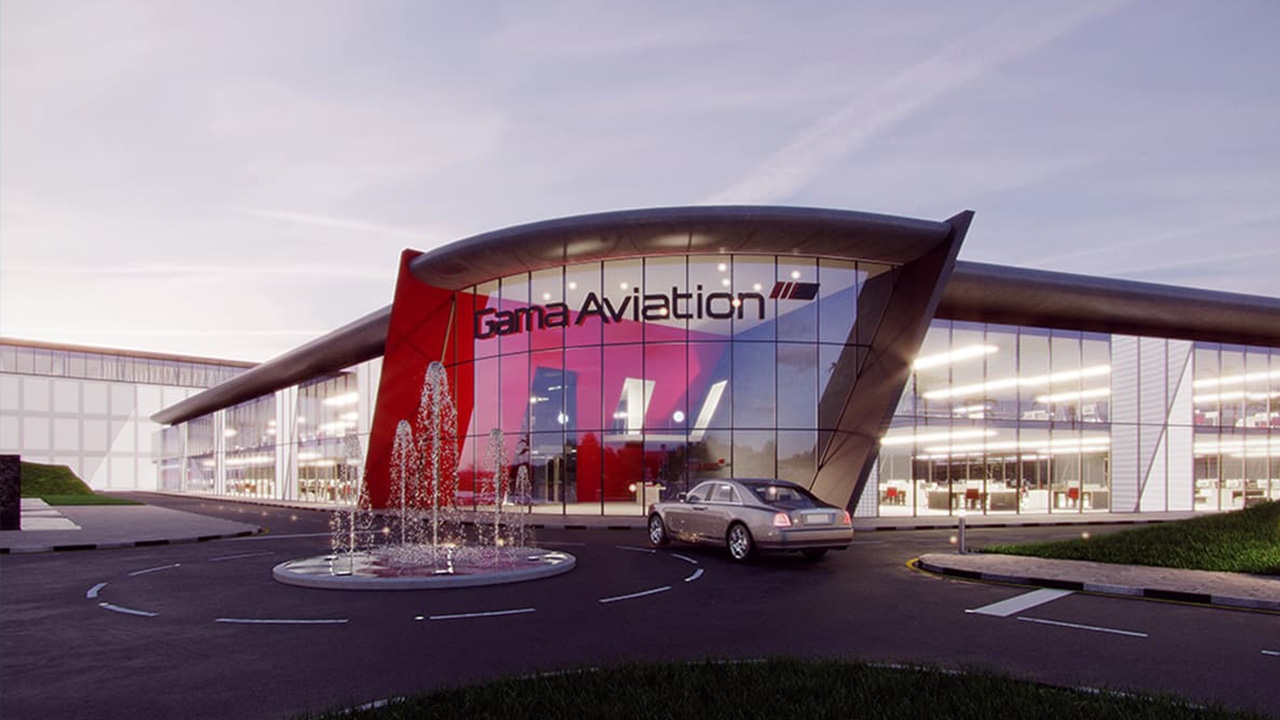Middle East private jet boom fuels Gama’s $100m Sharjah expansion
Gama Aviation is making a major push into the Middle East market with a $100 million investment in a new facility at Sharjah International Airport.

Image: Arabian Business
The company, which has operated in the UAE since 2009, is constructing a 14,000 square meter hangar and a VVIP FBO (Fixed-Base Operator) terminal in Sharjah. This expansion comes as business aviation traffic in the UAE has rebounded to pre-pandemic levels, with new aircraft owners entering the market.
Middle East private jet market boom
Tom Murphy, Head of Gama Aviation’s FBO division, told Arabian Business in an exclusive interview, “If it’s just been a snapshot of pre-pandemic volumes that we’ve seen in the Middle East, the market is now 100 percent in terms of flights in and out of the UAE. That’s comparing the volumes last year to 2019, pre-pandemic volumes.”
Murphy added that growth has maintained a steady pace over the last couple of years, creating significant opportunities for expansion in the region.
Sharjah: The new hub for business aviation in the UAE?
Gama Aviation’s decision to invest heavily in Sharjah, rather than the more well-known Dubai or Abu Dhabi airports, is strategic.
Murphy explained the unique advantages, he said, “Sharjah is unique in the sense that the airspace is not as congested as the other major airports in the UAE. Clients can arrive and depart anytime they want. It’s not so restricted. In other airports, you could ask for a 10 o’clock departure. It might be issued at 12:00 or 13:00 departure.”
This flexibility, combined with reduced taxi times and proximity to Dubai and the northern emirates, positions Sharjah as an attractive alternative for business jet travellers.
New facility to cater to growing demand for luxury air travel
The new Gama Aviation facility in Sharjah will significantly increase the company’s capacity to handle larger aircraft and provide high-end services to discerning clients.
“Until now, we’ve got an established client base, we’ve got a certain amount of aircraft that are based in Sharjah full time,” Murphy said. “What this project will enable us to do is increase our hangar capacity. We can accept aircraft that we have not been able to accommodate previously.”
The air-conditioned hangar space is particularly valuable in the UAE’s “harsh weather conditions”, where aircraft owners seek to protect their valuable assets.
While Gama Aviation’s initial client base in Sharjah consisted primarily of UAE nationals, the company has diversified its customer profile.
“With a lot of work into our marketing, a lot of work into increasing the relationships we have with business jet operators to give them education on the operational benefits of Sharjah, we’ve increased our market share,” Murphy stated. “It has captured some leisure traffic, it has captured expats that live here, but also passengers that are travelling to the UAE for leisure as well.”
The Sharjah project is just the beginning of Gama Aviation’s ambitious plans for the region. Murphy revealed, “We’ve got ambitions to open an FBO network in the GCC. Obviously, we’re heavily invested in the UAE, and we can make it to the GCC.”
This expansion strategy aligns with the company’s global growth plans, which include the recent announcement of its intention to acquire Tyrolean Jet Services, an established business jet operator with two European AOCs (Air Operator Certificates).
The investment in Sharjah comes at a time when the business aviation sector is experiencing a renaissance following the COVID-19 pandemic. Murphy noted, “We saw a lot of new aircraft owners off the back of COVID. A lot of them remained as aircraft owners or were chartering aircraft for the first time and decided that that’s the way that they like to travel.”
As Gama Aviation expands its presence in the Middle East, it faces the challenge of maintaining its personalised service while growing its operations. Murphy emphasised the company’s commitment to tailored customer experiences.
“If we treated everybody the same, it’s not the way to retain customers. That’s sort of the heartbeat of our business and has remained that way considering the ownership has been the same for over 40 years.”
Stay up to date
Subscribe to the free Times Aerospace newsletter and receive the latest content every week. We'll never share your email address.

